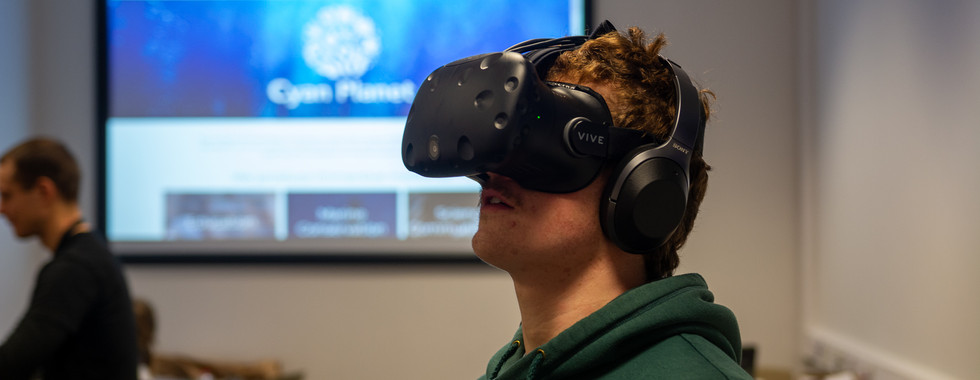This autumn, a large part of the travelling Cyan Planet team found themselves based in Galway, Ireland, and hosted a number of workshops for the local universities GMIT and NUIG. The goal was to showcase the potential of Virtual Reality as a tool for science communication and outreach, a topic also increasingly included in under- and postgraduate courses in environmental science degrees.
How can we better include science communication in higher education? This is now a common question asked by innovative universities that want to encourage both their staff and students to engage more with the public and help the understanding and uptake of their science. Cyan Planet partnered with the National University of Ireland (NUIG) and Galway-Mayo Institute of Technology (GMIT) to give their staff and students a better insight into the potential of using VR for doing outreach and creating an impact.
The workshops took off with the foundation of VR and how Cyan Planet embodies its concepts for creating scientific experiences. Succeeding, the participants got to test the various VR experiences from Cyan Planet, including our first proof of concept locomotion mechanism from How is the Water and projects such as the Seychelles Coral Reef Restoration by Sam Desmet and Montenegro Dolphin Research. In parallel, half of the participants took part in discussions reflecting their personal views of VR and how this technology can be applied in current issues relating to our planet. Covering subjects from the access to scientific information in different countries and integrating scientific communication on a political perspective.
The use of VR and other innovative immersive media technology also has another powerful element to it by acting as a bridge between staff and students! Even though, the staff members of course had more research experience, many students were slightly more familiar with the new technology. The discussion rounds aimed to further break down those power structures by creating a space where everyone could freely share and learn from each other. In the final phase of our workshops, little groups where formed and came up with their own ideas for VR experiences based on local needs and research. Here, the power that comes with having open minds and a free space to learn from all the experiences and potential in diverse groups really showed off! They produced some brilliant ideas that addressed local issues and research. That’s how we like to see VR - as a tool to bring everyone closer together! Not just “scientists and the public”, but also staff and students inside and between universities!
















Comments